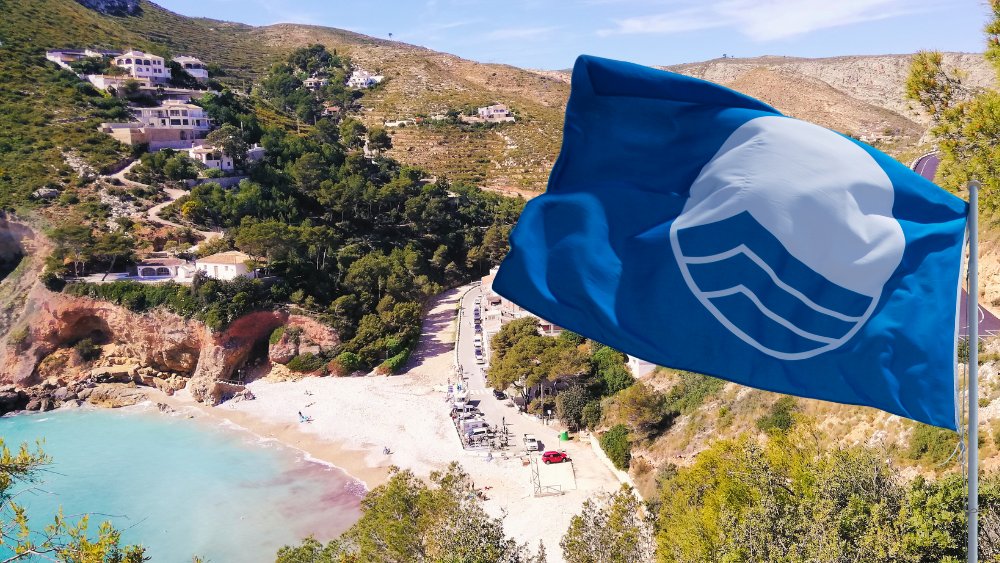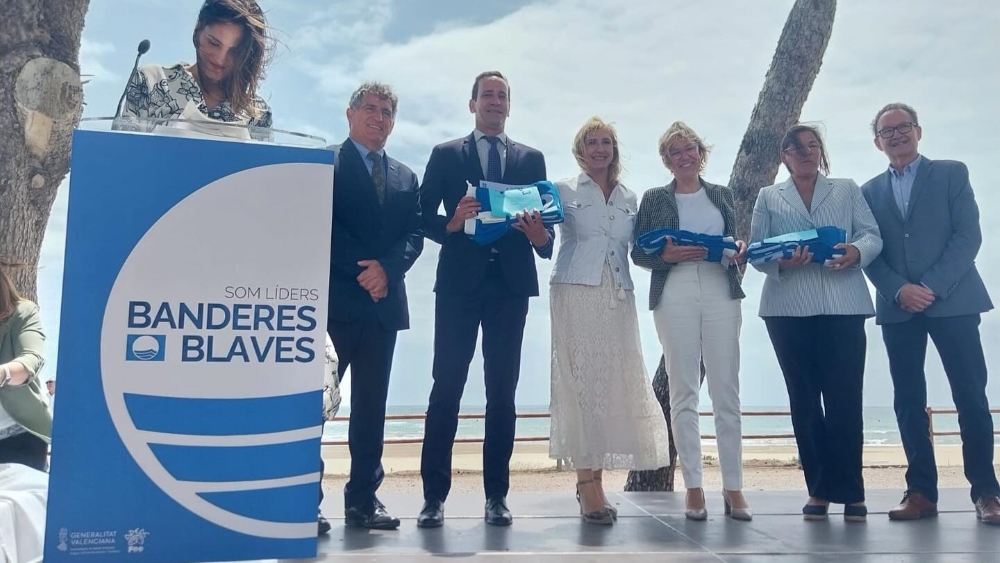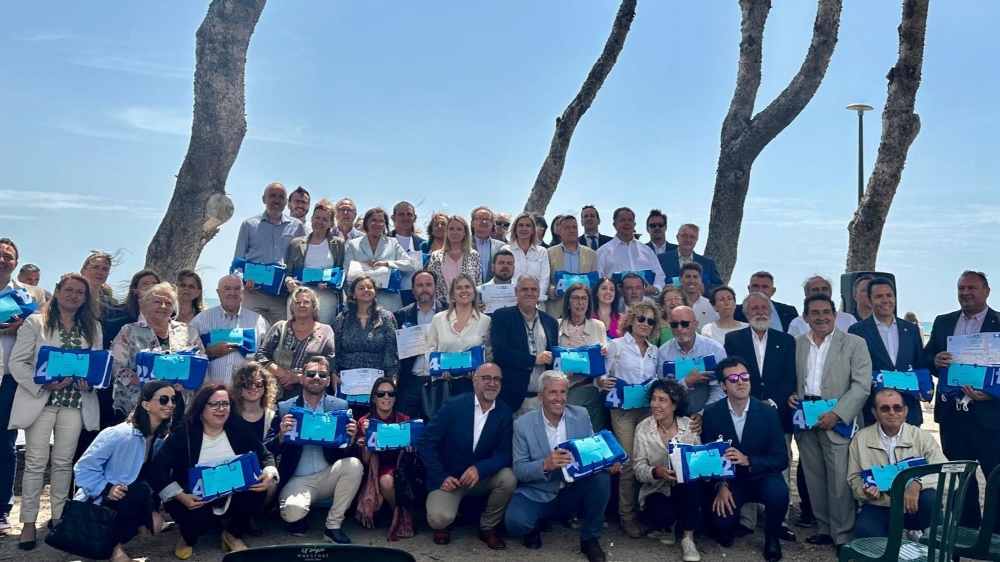The Comunidad Valenciana leads the way in Blue Flag status beaches in Spain in 2024
The iconic distinction has been awarded to the beaches of La Grava and Cala de la Granadella in Xàbia.

Beaches and other facilities in the Comunidad Valenciana have been awarded 159 blue flags for 2024, the most distinctions awarded to an autonomous community in Spain, and the regional secretary for the Environment, Water, Infrastructure and Territory, Salomé Pradas, has said that it proves “the reputation of the Comunidad Valenciana as a top-level tourist destination, guaranteeing that its beaches will continue to be a national treasure and an economic engine.
The distinctions are awarded every year by the Environmental and Consumer Education Association (ADEAC), which is a non-profit organisation responsible for promoting the initiatives of the Foundation for Environmental Education (FEE) in Spain, such as the Blue Flag, EcoSchools and Green Key.
The iconic Blue Flag distinction is an international award given annually to beaches, marinas and sustainable tourism models and qualification is subject to a series of strict environmental, educational, safety and accessibility criteria which must not only be met but also maintained.
Pradas said that “in a world increasingly aware of the importance of sustainability, the blue flags are a testimony of our effort, dedication and commitment to preserve and improve our coastal heritage,” adding that ““tourists are increasingly demanding and better informed, which is why they are looking for destinations that not only offer natural beauty, but also security, quality services, good communications and, without a doubt, a serious commitment to the environment and sustainability.“
Xàbia mayor Rosa Cardona attended the award ceremony at Alcalà de Xivert where she collected the blue flags for the beach of La Grava and Cala de la Granadella.

Blue Flags 2024
ADEAC has awarded the Comunidad Valenciana 159 Blue Flags for 2024, six more compared to 2023. The beaches of Pobla Marina (in Pobla de Farnals), Rabdells de Oliva and Torres de la Vila Joiosa has received their first distinction whilst Marina Salinas de Torrevieja and the beaches of Torrenostra (Torreblanca), L’Arbre del Gos (València), Les Deveses (Dénia), Levante and Malpas (Benidorm) and La Ermita (Santa Pola) have seen their distinction restored.
Of the 159 blue flags, 138 correspond to beaches, 19 to ports and, for the first time, two to Mundo Marino tourist boats with moorings in València and Dénia. Of the total, 87 correspond to the province of Alicante, 39 to Valencia and 33 to Castellón. Six beaches continue, without interruption, with a blue flag since the beginning of the program in 1987. Thus, for 38 consecutive years, Alcalá de Xivert (El Carregador beach), Alicante (Sant Joan beach), Calpe (La Fossa beach ), Campello (Carrer la Mar beach), Cullera (Sant Antoni beach) and Gandía (Nord beach) have received Blue Flag status. Also, the award has been revalidated by Playa-Monte de Navarrés, the only one with continental bathing waters for meeting the criteria of safety, services, accessibility and special attention to the preservation of the environment.
The regional secretary said that “maintaining and increasing, each year, the number of blue flags in the Comunidad Valenciana presents challenges that require continuous attention and innovative solutions.” For this reason, she called on all administrations, the tourism sector and civil society to “continue working together to maintain the levels of quality and excellence that have characterized our waters and sands for more than three decades.”






